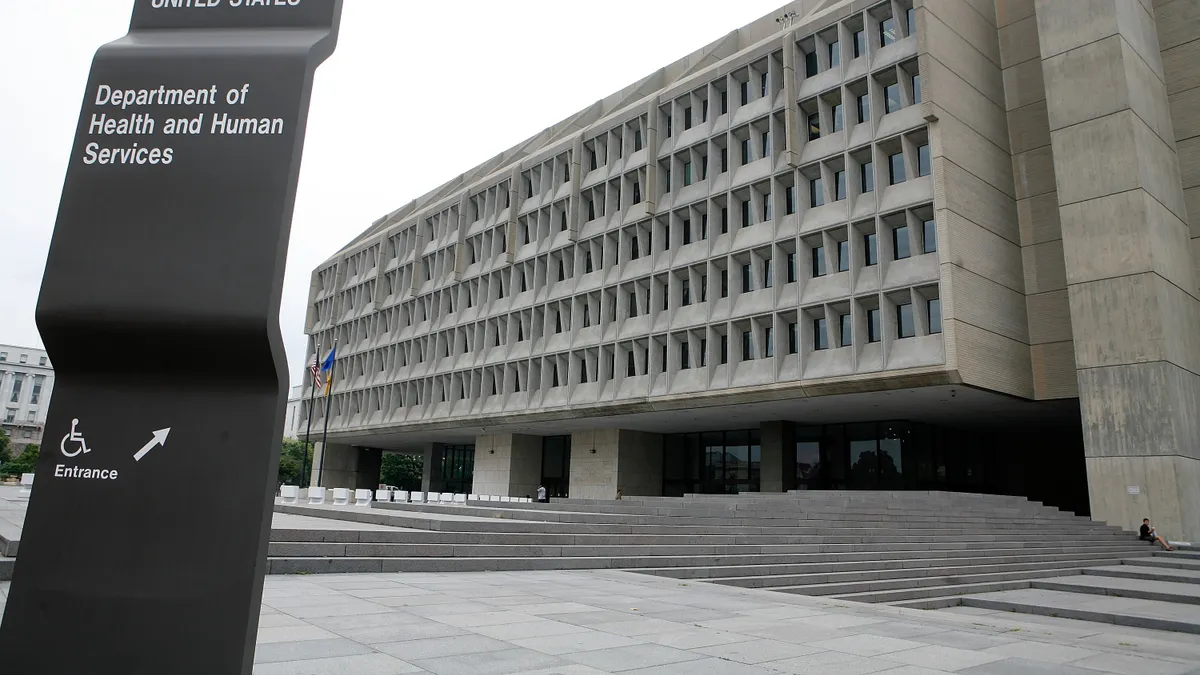Dive Brief:
- Medical device manufacturers are making what might be their final pleas to CMS to rethink plans to repeal the breakthrough payment rule, arguing the policy has overwhelming support and will help address health inequities.
- Trade groups AdvaMed and the Medical Device Manufacturers Association responded to CMS' call for feedback on the planned repeal of the Medicare Coverage of Innovative Technology pathway by proposing tweaks and new ideas to save it.
- AdvaMed wants CMS to instead tweak the process to address concerns, for example by setting up a feedback process that supports a proactive resolution of coverage issues. MDMA wants CMS to complete new rulemaking by the end of June.
Dive Insight:
The Biden administration's reversal of CMS moves to implement the breakthrough scheme has put industry on edge. Ultimately, officials sided with players like insurers and doctors who said it could result in coverage before proper evidence was in for the devices, especially in the Medicare population.
Analysts at J.P. Morgan called the pathway "a significant commercial tailwind" for companies including Abbott, Boston Scientific, Johnson & Johnson and Medtronic because it would bypass a "lengthy step" in getting breakthrough devices to Medicare beneficiaries.
Health group America's Health Insurance Plans warned MCIT could "potentially result in premature coverage of unproven devices for the Medicare population, exposing seniors and people with disabilities to increased health risks." CMS twice delayed the Trump era rule, before deciding it is not in the interest of Medicare beneficiaries and outlining plans to scrap it last month.
The call for feedback on the nixing of MCIT has spurred a push by the medtech industry to save the pathway. AdvaMed and MDMA have each urged CMS to find a way to expedite the coverage of breakthrough technologies.
AdvaMed, which wants CMS to retain the current final rule, proposed several fixes for the perceived shortcomings of the pathway, including the creation of a feedback process to address post-MCIT coverage issues.
"The feedback process would allow CMS opportunity to ask questions and/or provide feedback to the manufacturer on clinical trial design, endpoints, expected outcomes in FDA clinical trials, and planned post-approval studies and registries that would provide CMS with assurance that the clinical evidence is relevant to or supports use in the Medicare population. During this process, CMS would identify any outstanding issues related to Medicare coverage," AdvaMed wrote in its feedback.
AdvaMed also proposed making participation in MCIT voluntary and requiring companies to meet criteria to opt-in, thereby easing concerns about the number of devices that CMS will cover through the pathway. The final AdvaMed idea is to have CMS collaborate with developers of breakthrough devices on ongoing evidence development to support coverage after the MCIT period.
MDMA took a slightly different approach in its feedback. The trade group acknowledged "the operational challenges and other implementation issues raised by CMS and understand that the agency may be constrained in its ability to resolve those issues within the framework of the existing MCIT rulemaking process."
Rather than urge CMS to retain MCIT and try to resolve the issues within the existing process, MDMA called for the agency to propose and finalize a new rule that creates an expedited coverage pathway. MDMA wants CMS to make use of the feedback gathered in relation to MCIT, leading it to argue that the agency should complete the new rulemaking and implement the coverage pathway by the end of June.
The feedback indicates the industry's understanding of the concerns that led CMS to scrap MCIT. While trying to find a path forward with CMS, the industry is also working with Congress on plans to codify the breakthrough pathway in law through the next version of the 21st Century Cures Act.










